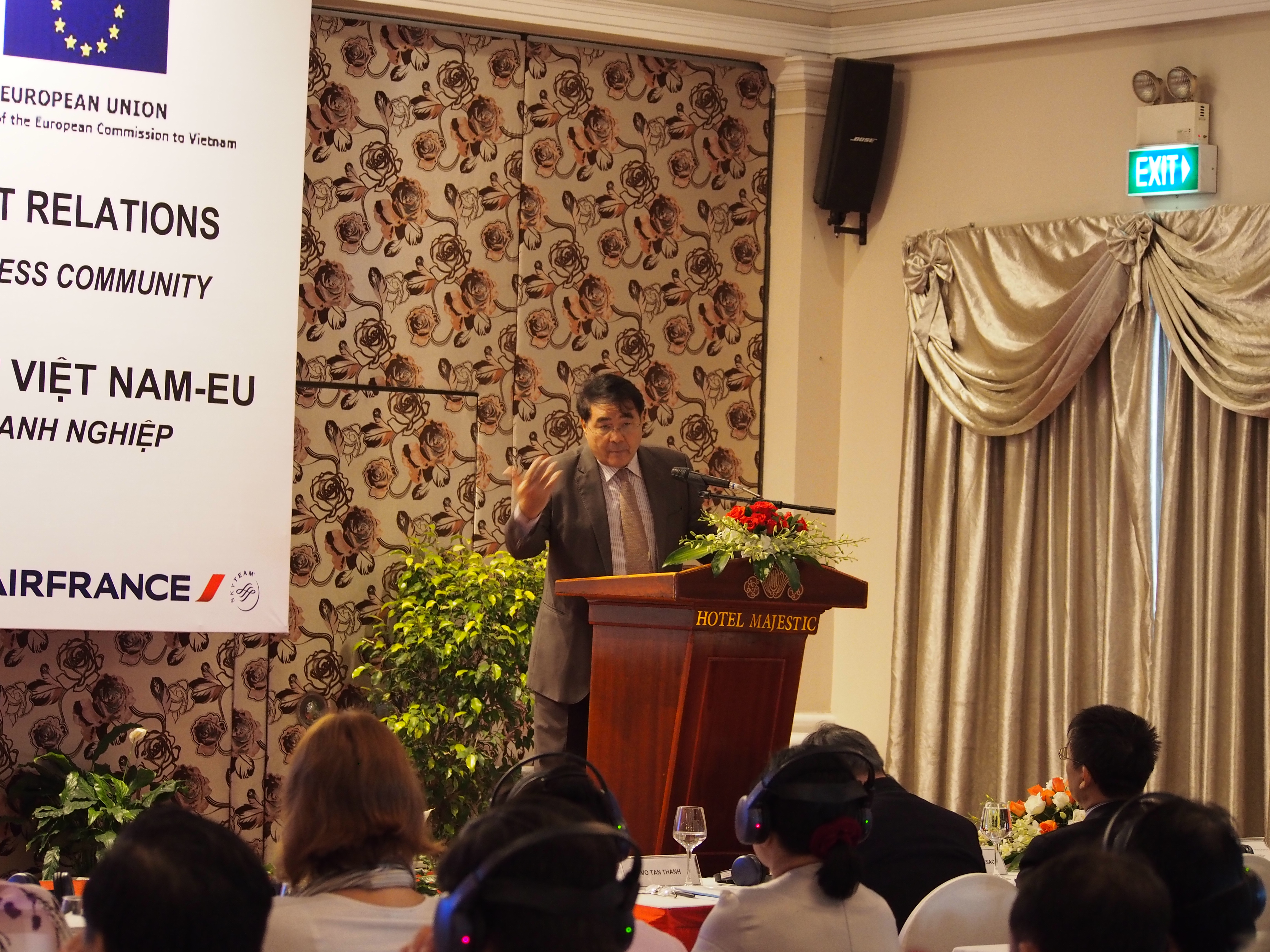The government is trying to speed up negotiations for the realization of the Vietnam- EU Free Trade Agreement (FTA) by the end of 2014, while some local experts and businesses have raised concerns about the impact of the FTA.
The FTA will bring in a rising trade deficit with the EU. Moreover, many local firms operating in the electronics, chemicals, and automotive sectors will be wiped out once the FTA comes into effect, as they cannot compete head-to-head with European-made products.
Spare no effort
“I will spare no effort to work with you to accomplish our target of completing the negotiations by the end of 2014,” Minister of Industry and Trade Vu Huy Hoang wrote in a letter dated April 12 to EU Trade Commissioner[H1] Karel De Gucht.
“I trust that the Vietnamese leadership will lend all support needed to reach an ambitious and comprehensive deal that would be mutually beneficial for both Vietnam and Europe,” De Gucht wrote in reply to Hoang 11 days later.
Vietnam’s exports to the EU are expected to enjoy annual growth of 4 percent in the future, according to recent research by the Multilateral Trade Assistance Project III (MUTRAP III) under the Ministry of Industry and Trade.
In addition, regarding export items in which Vietnam has an advantage over other regional countries, such as apparel – textile and wood-based furniture, once the import tax to the EU is exempted, the annual growth rates for such items will be 6 percent.
Meanwhile, imports from the EU are forecast to rise 3.1 percent yearly, and stronger foreign direct investment inflows from European firms can be expected as the investment environment of Vietnam will be improved following the FTA commitments, according to MUTRAP III.
Many experts said there is no need to be worried about a rising trade deficit with the EU, as the economic structures of Vietnam and the EU are complementary to each other.
Vietnam’s main exports to the EU are electric/electronic parts, apparel – textile, wood-based furniture, and agro-forestry-seafood products, while the EU’s main exports to Vietnam are high-tech products and high-quality services.
“I don’t think there will be a rise in the imports of European-made products to Vietnam after the FTA comes into effect, as EU firms are no longer focusing on making normal consumer goods,” said Tran Ngoc Quan, deputy head of European Market Department under the Ministry.
“The consumer goods made by EU firms are just enough for local demand, and the prices of those products may not be affordable for the rest of the Vietnamese people,” he said.
“They are now concentrating on designing, marketing and mobilizing capital and other financial products,” he added.
“As a result, to evaluate the FTA, we should take an objective view for mutual benefits and economic efficiency in general, not just on trade balance,” he said.
Vietnam enjoyed a trade surplus of $11.5 billion last year with $20.3 billion in export revenues and $8.8 billion in import revenues, according to the Vietnam General Department of Customs.
Worries persist
Many local experts and businesses are worried that the opening of the local market to European goods following the FTA means certain bitter outcomes for local firms, as they will soon be overwhelmed by those from the EU.
Local firms, many of which are weak compared to fully developed European firms, will no longer be protected, and they may soon exit the market because their goods cannot withstand the fierce competition from European rivals on their home turf.
Those companies operating in the electronics, chemical, and automotive sectors will be the most miserable, as they are not be prepared for such a battle, experts said.
Vietnam is still a very small and a developing economy compared to a fully grown, huge economy like the EU, so signing the FTA may bring more disadvantages than advantages for the local economy, said lawyer Pham Ngoc Hung, standing vice chairman of HCMC Business Association.
One of the biggest earners of export revenue to the EU, the local apparel – textile industry, for example, is heavily dependent on foreign materials and machinery, so very few Vietnamese apparel – textile products are 100 percent made in Vietnam, said Le Quang Hung, chair of BOD Saigon Textile Co.
As a result, once the FTA is brought in, those products cannot enjoy the preferential tax rate under the Generalized System of Preferences (GSP) of the EU, and Vietnam will lose its competitiveness in the sector when exporting to the EU, he said.
Moreover, the country has to sacrifice the benefits of many other sectors following the tax cut, but still enjoy nothing from its spearhead sectors like the apparel – textile industry, he added.



















































